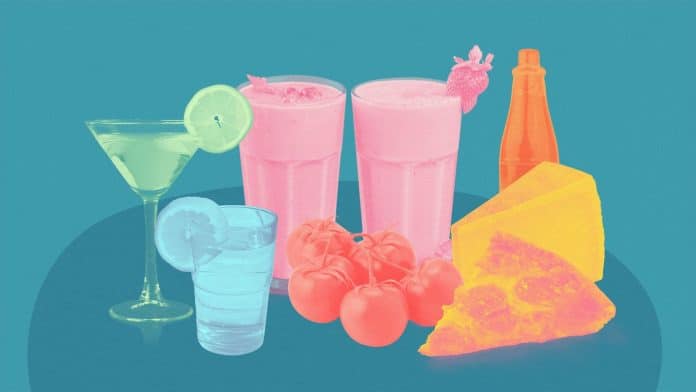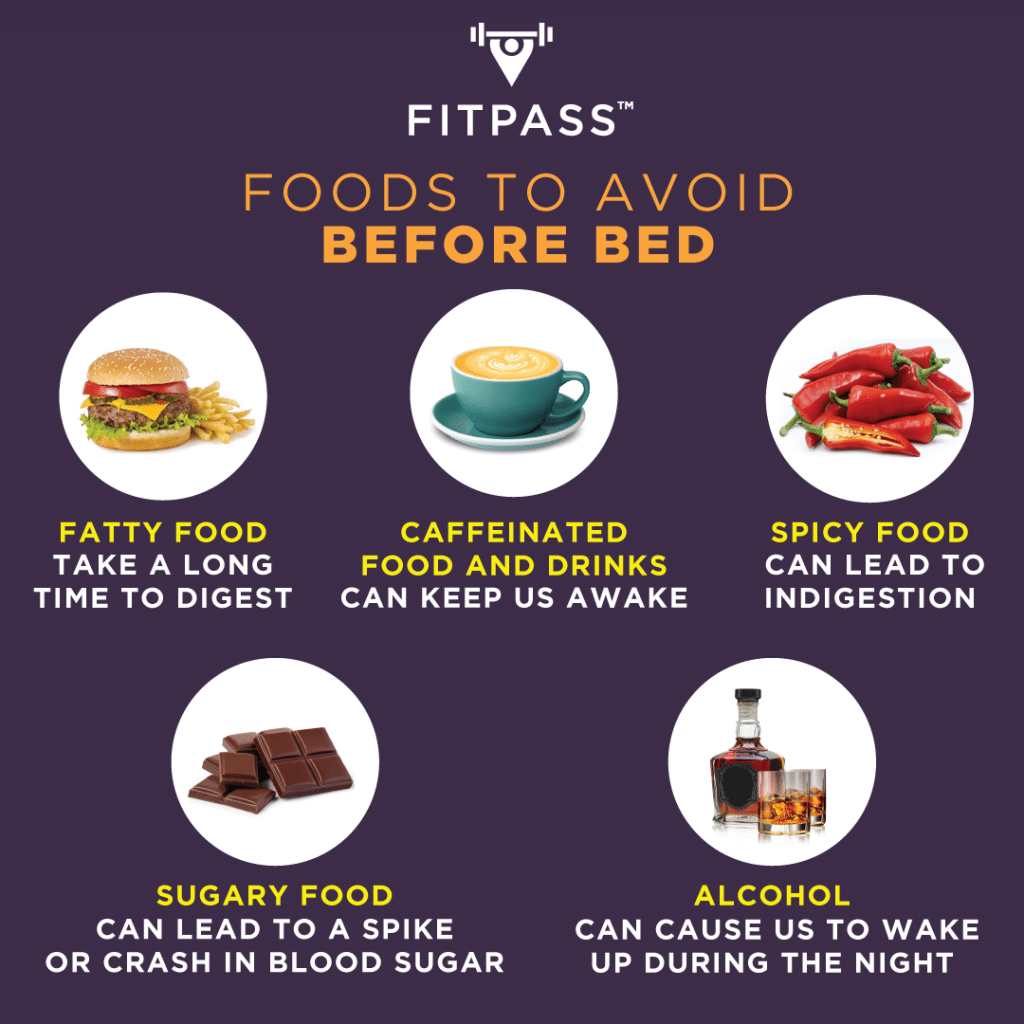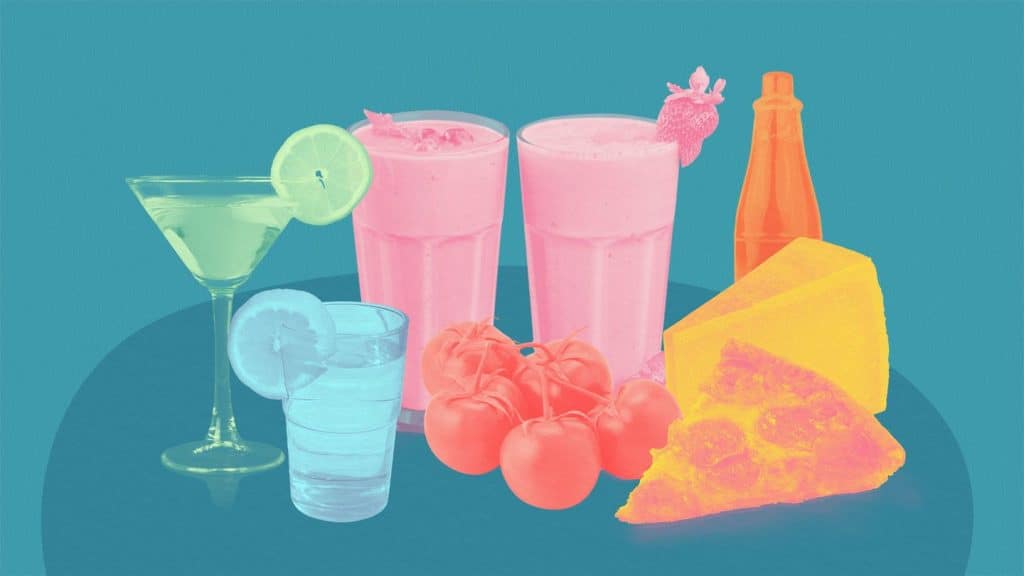We all love a good night’s sleep, don’t we? But did you know that what you eat and drink can actually disrupt your precious zzz’s? In this article, we’ll explore the sneaky culprits lurking in our pantry and fridge that may be keeping us tossing and turning at night. From that late-night cup of coffee to spicy foods that tantalize our taste buds, we’ll uncover the surprising offenders that sabotage our sleep and offer tips on how to enjoy a restful night’s slumber. So, stay tuned and prepare to bid farewell to those sleepless nights!
Review contents
Foods that Disrupt Sleep
Sleep is an essential part of our overall well-being, allowing our bodies and minds to rest and recharge. However, there are certain foods that can disrupt our sleep patterns, making it difficult to fall asleep or stay asleep throughout the night. It’s important to be mindful of our diet, especially in the hours leading up to bedtime, to ensure a restful night’s sleep.
Spicy Foods
Spicy foods, such as curry, chili peppers, and hot sauces, not only add flavor to our meals but can also spice up our sleep routine. Consuming spicy foods close to bedtime can lead to heartburn, indigestion, and discomfort, making it harder to relax and fall asleep. These foods can also increase your body temperature, which can disrupt your natural sleep cycle. To promote better sleep, it’s best to avoid spicy foods at least a few hours before bedtime.
Fatty Foods
Indulging in fatty foods, such as greasy burgers, deep-fried snacks, or rich desserts, may be tempting, but they can lead to a restless night’s sleep. These heavy foods take longer to digest, causing discomfort and increasing the risk of acid reflux. Additionally, fatty foods can stimulate the production of acid in the stomach, causing discomfort and potentially disturbing our sleep. Opting for lighter, healthier options for dinner can promote better digestion and quality sleep.
High-Sugar Foods
While sugary snacks may provide a quick energy boost, they can also wreak havoc on our sleep. Foods high in sugar, such as cookies, candy, and soda, cause spikes in blood sugar levels, resulting in an energy crash later on. This can make it harder to fall asleep and maintain a deep sleep throughout the night. Instead, choose snacks that are low in sugar but high in protein and fiber, such as yogurt with fruit or a handful of nuts, to keep you feeling satisfied and promote better sleep.
Caffeinated Foods
It’s no surprise that caffeine can disrupt sleep, but it’s not just drinks like coffee and tea that contain this stimulant. Some foods, such as chocolate, also contain caffeine and can interfere with our sleep patterns. Chocolate, especially dark chocolate, contains both caffeine and theobromine, which can increase alertness and make it harder to fall asleep. If you’re sensitive to caffeine, it’s important to be aware of its presence in certain foods and limit your consumption in the evening.
Processed and Fast Foods
While convenient, processed and fast foods often lack the necessary nutrients our bodies need to function properly, including promoting quality sleep. These foods are typically high in sodium, additives, and preservatives, which can disrupt our natural sleep patterns. Additionally, consuming too much processed and fast food can lead to weight gain and other health issues, further impacting our sleep quality. Opt for whole, unprocessed foods whenever possible to support a restful night’s sleep.
Alcohol
While alcohol may initially make you feel drowsy and help you fall asleep faster, it can lead to a disrupted sleep cycle and poor sleep quality overall. Alcohol interferes with the normal progression of sleep stages, preventing us from entering the deeper, more restorative phases of sleep. This can result in frequent awakenings throughout the night, leaving us feeling groggy and tired the next day. If you choose to drink alcohol, it’s best to do so in moderation and avoid consuming it close to bedtime.
Large Meals
Eating a large meal right before bedtime can lead to discomfort, heartburn, and indigestion, all of which can disrupt our sleep. When we lie down after a big meal, gravity is no longer helping the digestion process, making it easier for stomach acid to flow back up into the esophagus, causing discomfort and disturbing our sleep. To promote better sleep, try to eat your main meals at least two to three hours before going to bed and opt for lighter, easily digestible snacks if needed.
This image is property of cdn.fitimg.in.
Drinks that Disrupt Sleep
In addition to certain foods, our choice of beverages can also greatly impact the quality of our sleep. From caffeine to alcohol and sugary drinks, it’s important to be mindful of what we consume in the hours leading up to bedtime to ensure a restful night’s sleep.
Caffeinated Drinks
Caffeinated drinks, such as coffee, tea, and energy drinks, are known for their wake-promoting effects. While they provide a much-needed boost of energy during the day, consuming caffeine too close to bedtime can make it difficult to fall asleep. The stimulating effects of caffeine can last for several hours, disrupting our sleep patterns and leaving us feeling groggy the next day. To promote better sleep, avoid consuming caffeinated drinks within six hours of bedtime.
Alcoholic Drinks
While alcohol may initially make you feel relaxed and drowsy, it can disrupt the quality of your sleep later in the night. Alcohol interferes with the body’s natural sleep cycle, causing restless sleep, frequent awakenings, and a decrease in REM sleep, which is crucial for restoration. Additionally, alcohol is a diuretic, causing increased trips to the bathroom during the night, further disrupting our sleep. If you choose to drink alcohol, do so in moderation and allow several hours between your last drink and bedtime.
Sugary Drinks
Sugary drinks, such as soda, fruit juices, and sweetened beverages, can provide a temporary energy boost but can also impact your sleep. These drinks cause fluctuations in blood sugar levels, which can disrupt your body’s ability to regulate sleep hormones. Additionally, the high sugar content can lead to energy crashes and increased wakefulness during the night. It’s best to opt for water, herbal tea, or naturally flavored water to stay hydrated and promote better sleep.
Energy Drinks
Energy drinks are often marketed as a quick fix for fatigue and low energy levels, but they can have negative effects on our sleep. These drinks are loaded with caffeine, sugar, and other stimulating ingredients that can interfere with our natural sleep-wake cycle. Consuming energy drinks too close to bedtime can make it difficult to fall asleep and lead to disrupted sleep throughout the night. If you need an energy boost, opt for healthier alternatives like green tea or a piece of fruit to avoid compromising your sleep.
In conclusion, the foods and drinks we consume can significantly impact our sleep quality. Spicy and fatty foods, high-sugar foods, caffeinated foods, processed and fast foods, large meals, caffeinated drinks, alcoholic drinks, sugary drinks, and energy drinks can all disrupt our sleep patterns and make it harder to get a restful night’s sleep. By being mindful of our diet and making healthier choices, we can promote better sleep and wake up feeling refreshed and rejuvenated each morning.
This image is property of images.everydayhealth.com.





























